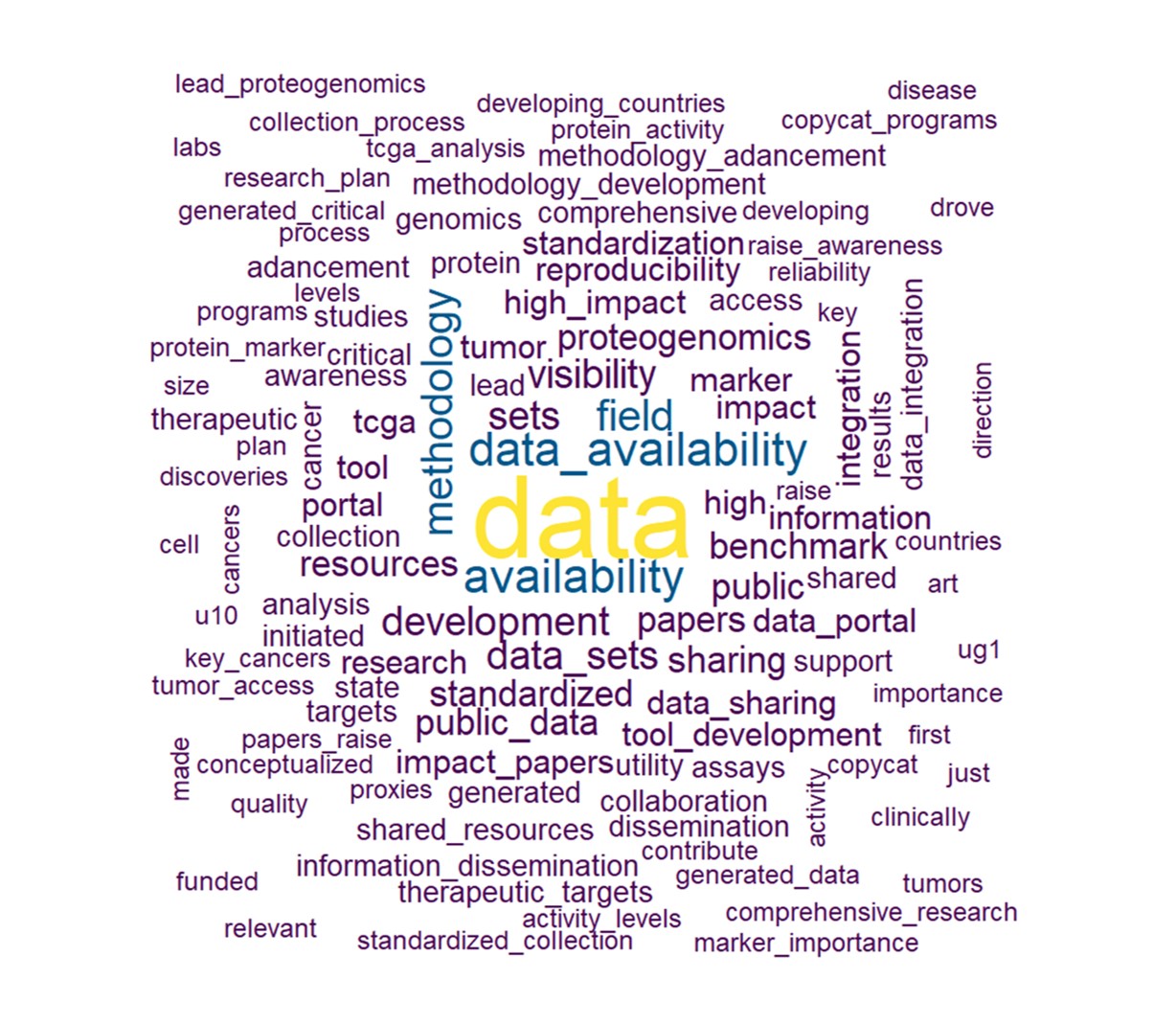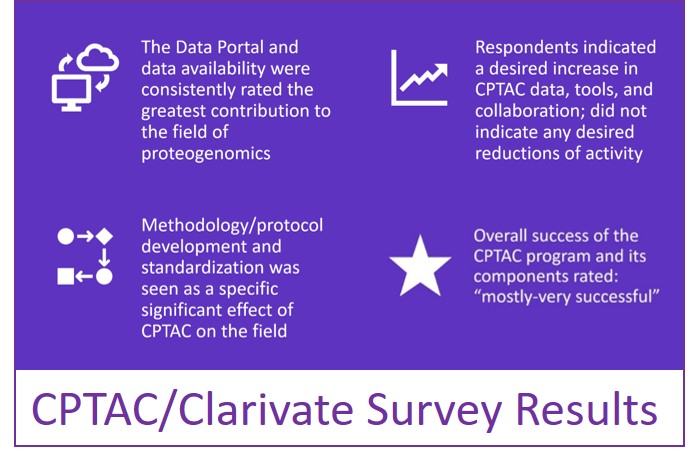The Office of Cancer Clinical Proteomics Research (OCCPR)  cares what you think about the Clinical Proteomic Tumor Analysis Consortium (CPTAC) program and all its offerings! Working with Clarivate Analytics to conduct a survey, we wanted to determine the effect of the CPTAC program on the proteogenomic research community. The evaluation provided the NCI with an objective, third-party assessment of CPTAC program implementation.
cares what you think about the Clinical Proteomic Tumor Analysis Consortium (CPTAC) program and all its offerings! Working with Clarivate Analytics to conduct a survey, we wanted to determine the effect of the CPTAC program on the proteogenomic research community. The evaluation provided the NCI with an objective, third-party assessment of CPTAC program implementation.
Survey Development
Using a focus group of experts, survey concepts and constructs were generated and then validated using a Delphi Panel. The finalized survey was disseminated through relevant email distribution lists, the HUPO online newsletter, and social media to reach our target audience. The survey gathered 283 overall responses, 123 of which were complete. Of our respondents, 85% of had some familiarity with the CPTAC program, 70% were unaffiliated with CPTAC (past or present), and 77% currently reside in the United States.
Outstanding Results
With overall positive reviews, CPTAC was praised for being an important initiative that served a unique and critical role in cancer research, as well as being an excellent community resource. The CPTAC Data Portal and data availability were consistently  rated to be the greatest contribution of the program to the proteogenomics field. Additionally, the methodology/protocol development and standardization developed by CPTAC was touted as having a significant effect on the field.
rated to be the greatest contribution of the program to the proteogenomics field. Additionally, the methodology/protocol development and standardization developed by CPTAC was touted as having a significant effect on the field.
Respondents felt that CPTAC has had a positive effect on proteogenomic use and collaboration with the greater scientific community, and requested an increase in CPTAC data, tools, and collaboration. Also, respondents indicated that the program could benefit from greater visibility and more usability of its wonderful resources.
We Hear You!
In the past year we have doubled our scientific output, publishing 7 flagship papers, as well as increasing our available datasets from 227 in 2018 to 531 in 2019, and updating our CPTAC and Proteomic Data Commons Portals to make them easier to navigate. . We have also ramped up our efforts to keep you informed of new data and implemented a webinar series to help researchers use our resources and invite them to be a part of our data sharing communities.
We have conducted several talks, interviews, and conference sessions both intramurally and extramurally to get the word out about this ground-breaking program, while collaborating with several NCI divisions to expand our reach. Notably, we recently hosted our first public CPTAC Symposium, and are now planning our upcoming AACR 2020 educational session and major symposia.
The CPTAC program is proud to have evidence of achievement regarding its goals in advancing the field of proteogenomics and building a positive perception among the proteogenomic research community. Thank you for all your support!

